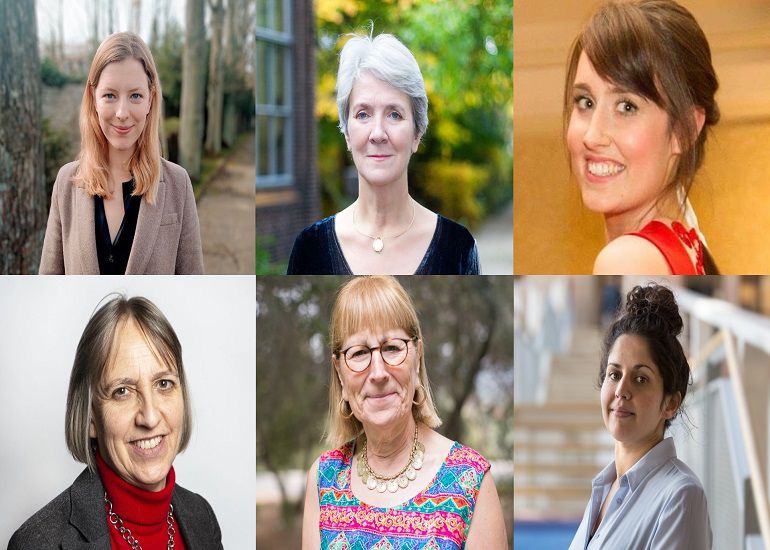Sally Wyatt, Jeanne Lenders, Hinda Haned, Judy Wajcman, and Erin Young: “(Gender) Diversity and Inclusion in Digital Humanism”
"This panel focuses on how different voices and interests can be included in the development and application of digital technologies."

April 13th 2021
- 17:00 – 18:30 CEST
-
This is an online-only event.
See description for details.
On This Page
- Panelists:
Sally Wyatt, Maastricht University, The Netherlands
Jeanne Lenders, European Commission
Hinda Haned, University of Amsterdam, The Netherlands
Judy Wajcman, London School of Economics | The Alan Turing Institute, UK
Erin Lorelie Young, The Alan Turing Institute, UK - Moderator: Lynda Hardman, CWI – Centrum Wiskunde & Informatica, Amsterdam and Utrecht University
About the Event
April 13, 2021
5:00 – 6:30 PM
(17:00) CET
Abstract
Digital Humanism is ‘focused on ensuring that technology development remains centered on human interests’. This panel focuses on ‘which humans’, and how different voices and interests can and should be included in the development and application of digital technologies.
Sally Wyatt will examine how the inclusion of women in computer science and related fields has declined over the past 50 years. She will argue that including women is partly a matter of social justice, of providing women with access to interesting and well paid jobs. Further, it is a matter of epistemic justice, including women’s perspectives and experiences could lead to better and more inclusive technologies.
Jeanne Lenders will explain how the Commission is stepping up efforts for gender equality in research and innovation, including on women’s participation in STEM and the integration of gender perspectives into research and innovation content. She will highlight the strengthened provisions for gender equality in Horizon Europe, the next Framework Programme for Research and Innovation, and showcase examples of the Commission’s ‘Gendered Innovations’ Expert Group.
Hinda Haned will discuss different definitions of bias, and bias mitigation through so-called “fairness algorithms”. Drawing from practical examples, she will argue that the most fundamental question we are facing as researchers and practitioners, is not how to fix bias with new technical solutions, but whether we should be designing and deploying potentially harmful automated systems in the first place.
Judy Wajcman and Erin Young will discuss the gender job gap in AI. The fields of artificial intelligence and data science have exploded as the world is increasingly being built around smart machines and automated systems. Yet the people whose work underpins that vision are far from representative of the society those systems are meant to serve. Their report shows the extent of gender disparities in careers, education, jobs, seniority, status and skills in the AI and data science fields. They argue that fixing the gender job gap in AI is not only a fundamental issue of economic equality, but also about how the world is designed and for whom.
Slides
Here you can download the slides:
Sally Wyatt
Jeanne Lenders
Hinda Haned
Judy Wajcman and Erin Young
Video
If you watch this video, data may be transmitted to third parties.
Watch on YouTube: https://youtu.be/LCkFOUrh6yM

